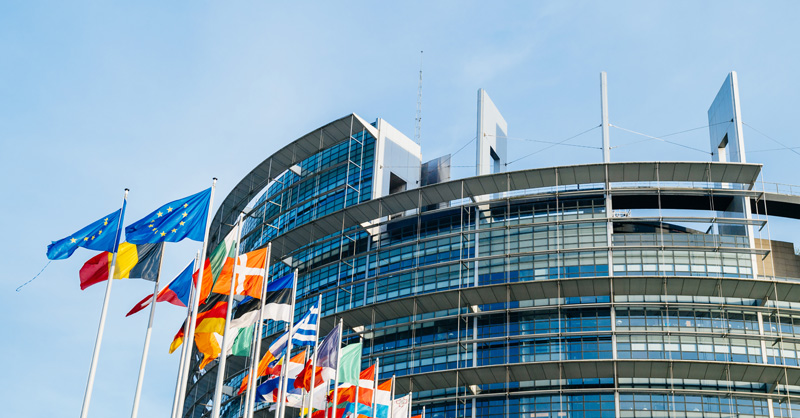New EU trade tools to address 'multiple scenarios' for global order, draft policy says
02 February 2021 17:24 by Joanna Sopinska

The EU will strengthen its trade policy tools to be able to “effectively” respond to “multiple scenarios” on the world stage, according to a draft policy paper seen by MLex.
The document refers to “growing tensions between the US and China,” suggesting an analysis that the Biden administration won’t entirely reverse the deterioration in relations seen in recent years between the world’s two biggest powers.
The EU will develop a new anti-coercion mechanism to deal with attempts by foreign governments to interfere in its domestic affairs; “explore options” for export credits for EU businesses that face unfair completion in global markets; and consider enhancing the screening mechanism for foreign direct investments.
“The EU needs to equip itself with the necessary tools to operate in a more hostile international environment if necessary,” says the draft communication, which is to be presented by the European Commission on Feb. 17.
While remaining open to trade, the EU will also aim to increase its resilience to global shocks that could disrupt supply chains, as was the case at the height of the Covid-19 crisis — an approach the commission calls “open strategic autonomy.”
This means that on a global stage, the EU will remain committed to fair, open and rules-based trade, while pursuing its sustainability goals in the areas of climate change and labor rights. At the same time, the bloc will keep strengthening its trade toolbox so that other countries can’t take advantage of its openness.
Open strategic autonomy “implies supporting domestic policies oriented at strengthening the EU’s economy and helping position it as a global leader in pursuit of a reformed rules-based system of global economic governance,” the commission says in the draft.
To this end, the bloc will take an active role in efforts to revamp the World Trade Organization across all its functions.
Great power rivalry
Strengthening the partnership with the US while building a fairer trade relationship with China will be the key priority for the EU in the coming years, the paper says. The bloc wants to work with the new US administration on reforming the WTO reform, and with both partners on the green and digital transformations.
The EU’s China policy will encourage Beijing to “[take] up a greater responsibility in international trade commensurate with its size and growth, and [deal], in parallel, with the negative spill-overs caused by its state capitalist economic system.”
At the same time, the commission recognizes that Europe must learn how “to effectively operate in a new multipolar global order marked by growing tensions between the US and China.”
To face this challenge, the bloc’s “trade policy needs the tools to respond to multiple scenarios, ranging from a ‘non-cooperation’ scenario, in which the global order would continue its fragmentation, to a ‘renewed multilateralism’ scenario, in which there would be concerted efforts for cooperation namely towards a reform of the WTO,” the EU executive argues.
New measures
Among the new measures proposed in the draft paper, the commission is considering a new instrument to protect the EU economy against “coercive” measures by foreign governments — an initiative that started to gather momentum among policymakers last year after the Trump administration imposed several rounds of tariffs outside the WTO framework.
The commission will also “explore options for an EU strategy on export credits” that could “complement” existing initiatives by export credit agencies in EU countries. This should aim to “advance EU strategic objectives such as facilitating a green transition, the digital economy and connectivity,” the paper says.
On screening of foreign direct investments, a new regulation has been in place since October to “protect security and public order from risky foreign direct investments,” the draft document says. The commission will “consider enhancing the FDI screening Regulation” further, it says.
Related Articles
No results found
